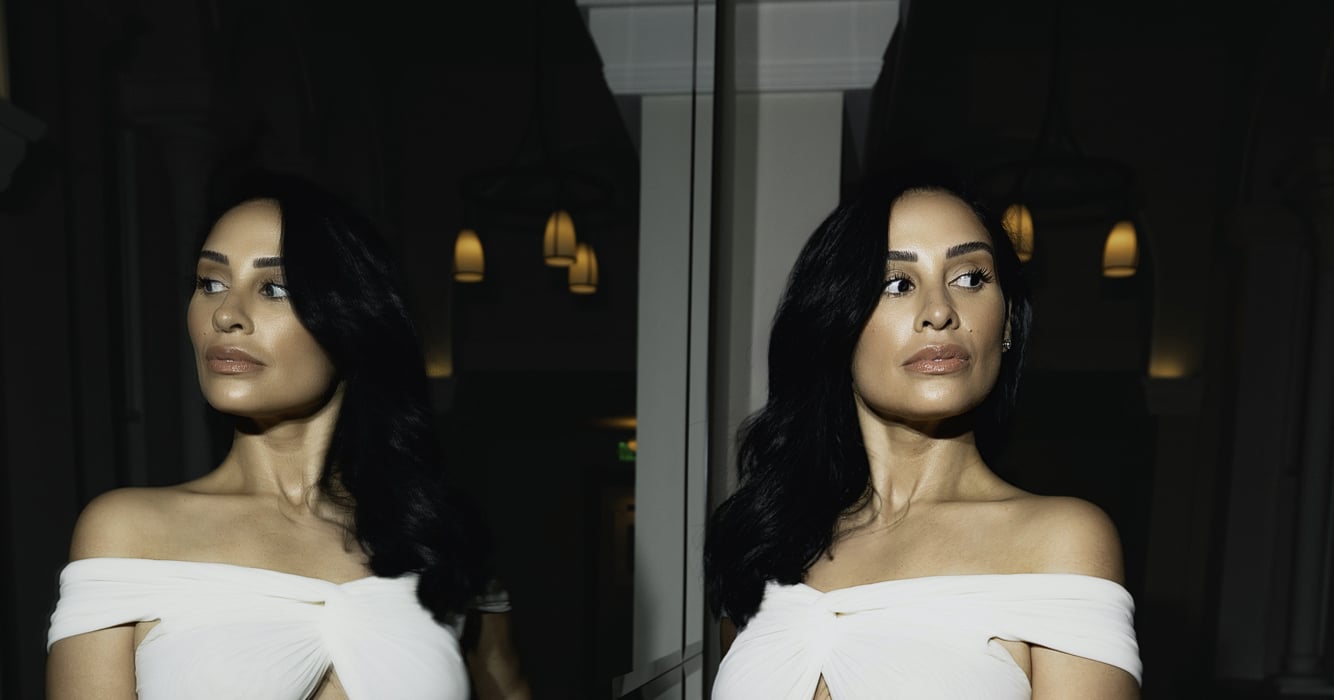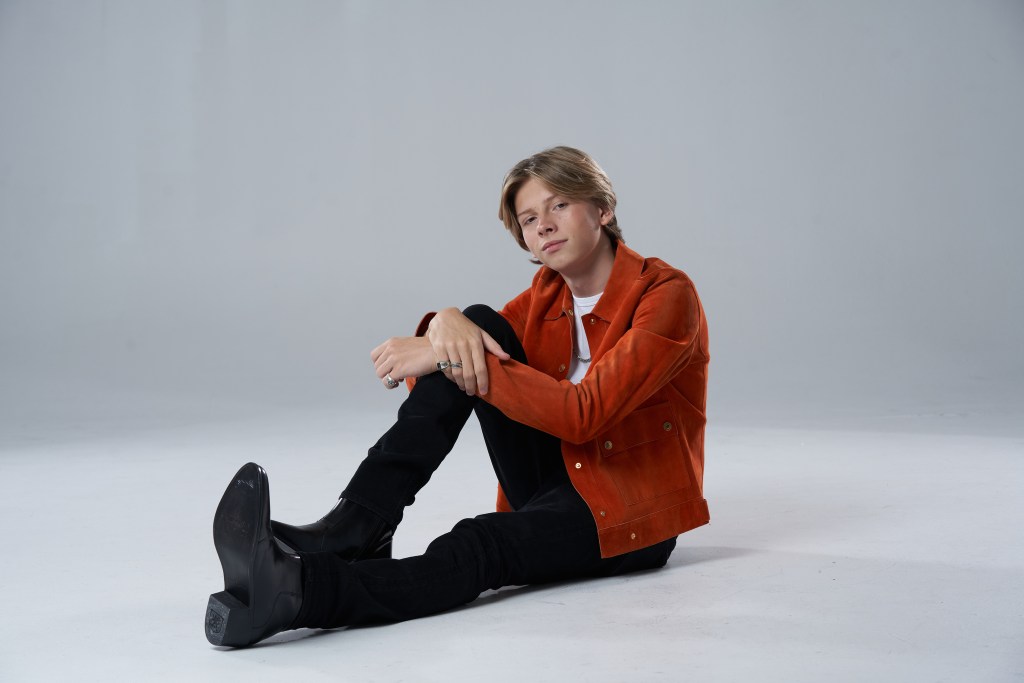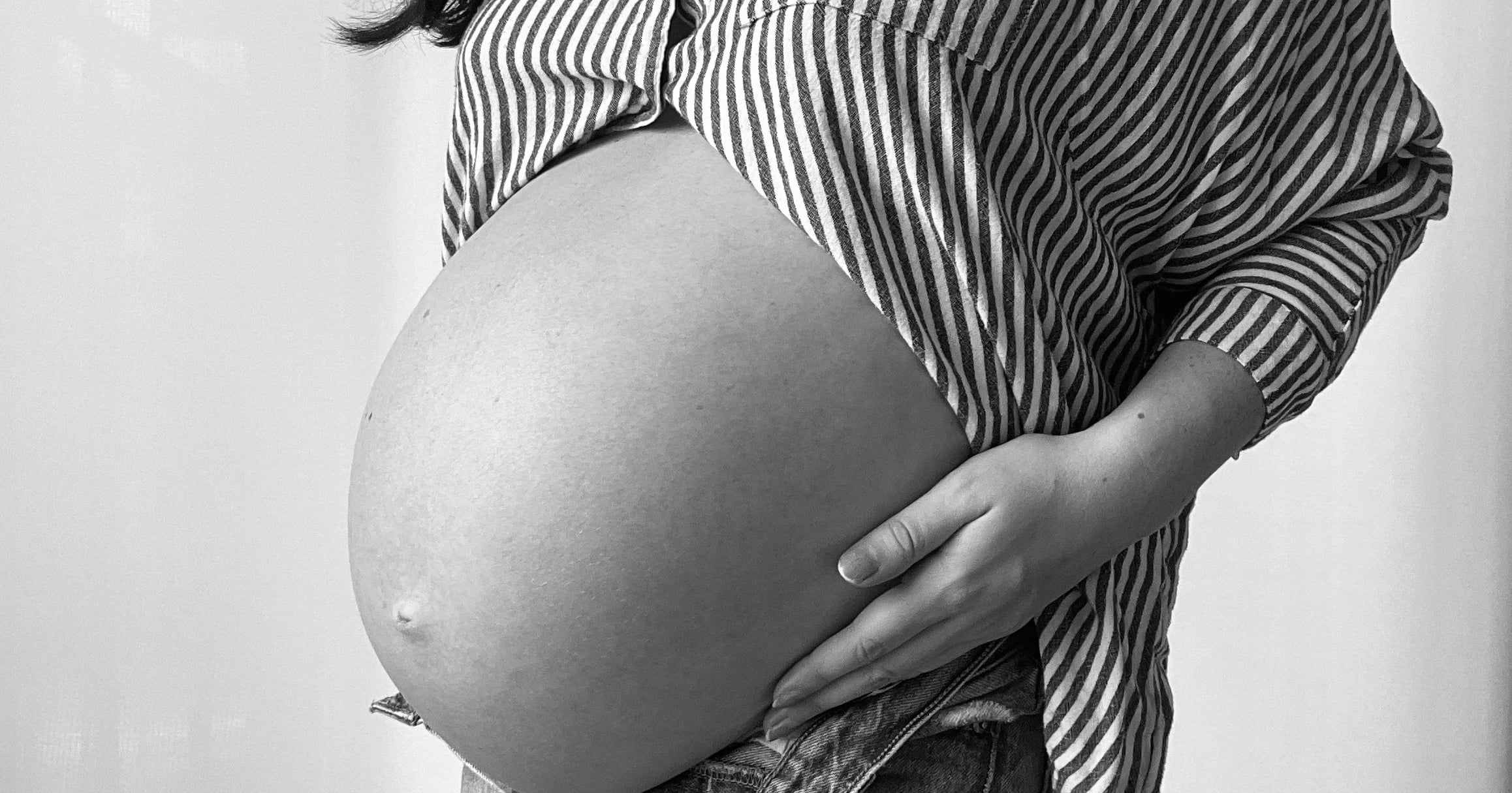For many Latinas – Dominican women especially – expectations rooted in machismo and misogyny tend to shape us from an early age. We’re often raised to put everyone else first – our families, parents, siblings, spouses, children, and even our communities. This self-sacrifice, however, can come at a great cost to our own health and well-being. Francelys Infante knows this all too well. The entrepreneur and wife of Latin superstar and bachata king Romeo Santos faced a life-altering moment that forced her to reevaluate everything. Last fall, the mom of three suffered three brain aneurysms – a near-death experience that completely transformed her life and led her to a new purpose: to educate women, especially mothers, on the importance of prioritizing their health.
When Infante first experienced a bad migraine late last year, she initially brushed it off as exhaustion from raising her three kids.
“It started like a normal headache but then nighttime came, and I was FaceTiming with my husband, and I said to him, ‘I can’t even look at you with my eyes. I feel like I’m going blind. My head is pounding in such a way that I’ve never experienced before,'” she says.
Minutes later, Infante took some pain relief medication before going to sleep, but the following morning she woke up to discover that her symptoms had gotten significantly worse. She had severe pain on both the left side of her head and her neck, which led her to finally call her doctor.
Today, Infante believes that her body had been signaling to her to slow down for a while. But she ignored them due to the weight of her motherly responsibilities.
“In August [of that year], while I was working out, I tore my hip flexor and was in so much pain and so they sent me to do an MRI. I did an MRI for my hip flexor, [but] something told me it wouldn’t be a bad idea to do the whole scan of everything,” she says. “I kept postponing it. I postponed it so many times. I never had the time, so on the day that I got the headache, I called my doctor, she was like, what happened with the scans you were going to do? I said, ‘I don’t know. I haven’t had the time.'”
Infante, who lives in Florida with her family, was in New York City at the time with no immediate plans of flying back, so her doctor made sure to get her an appointment to see what was going on. What the now 39-year-old didn’t expect to hear was that the painful migraines were actually brain aneurysms.
“A few hours later, I was on a telehealth call with my doctor, the neurologist, the coordinator, and my husband, and they were pretty much saying, ‘You need to get surgery today. You have had two brain aneurysms,'” she shares.
In less than 48 hours, Infante had to get on a plane to Miami to get brain surgery that she was warned by doctors she might not wake up from.
“Imagine leaving your kids, your family, not knowing if you’re going to come back, and then my son goes, ‘Mom, who’s going to take care of me?’ And starts crying. I’m like, ‘Oh my god, he feels it. I’m going to die,'” she says. “I tried to be positive about it. It felt like God was trying to talk to me in several different ways . . . My body was talking to me in different ways so that I would pay attention to it. First, I hurt my hip and then the headache. Just to make me realize like, ‘Hey, you could die.'”
According to Mayo Clinic, a brain aneurysm “is a bulge or ballooning in a blood vessel in the brain.” While most brain aneurysms tend to be small without minor symptoms and damage, a ruptured aneurysm can cause symptoms like nausea and vomiting, stiff neck, blurred or double vision, sensitivity to light, seizures, a drooping eyelid, loss of consciousness, confusion, and can quickly lead to a stroke or become life-threatening. Brain aneurysms are also more common in women by about 60 percent, with exposure being even higher for mothers. According to research, the third trimester of labor can increase a woman’s chances of developing a brain aneurysm due to the significant changes in hormones and blood flow. In fact, the risk of a ruptured aneurysm is higher in the third semester and for six weeks after giving birth, with Black and Latina women being twice as likely to have a brain aneurysm rupture compared to their white counterparts.
As someone who chose to put her own needs and dreams aside for the betterment of her family, Infante says the successful surgery became her biggest epiphany. It was the wake-up call she desperately needed to finally pour into herself.
“I’m here taking care of everyone and stressing over everyone, making sure my house is always on point because I run a whole team in my house. Plus, sometimes, even with my husband’s stuff, it was just a lot going on,” she says. “There was a part of me that was like, girl come on. You’re here. You barely made it, and you’re not even living your dreams.”
In 2016, Infante registered her beauty/wellness brand but admits that she didn’t do anything about it until following the surgery. She believes that the brand today has more purpose than when she initially came up with the idea.
“It holds a meaning. Before, it was Not Too Broke For Beauty but it was just supposed to be makeup and beauty. Now it’s wellness and beauty, and it has a message: you’re not too broken to be beautiful,” she says. “There are women who let go of themselves. It can be housewives or even if you’re single and work just takes over you, and you don’t give yourself priority. If you’re not here today, life goes on, so you need to prioritize and take advantage of the time you have now, and that was my message and that’s the message that I want to bring across with my brand.”
Like many Latinas, Infante was raised to believe that to be a good woman, she had to put everyone’s needs before her own and always with a smile on her face – a double standard that’s rarely ever placed on men. By 11 years old, she had already learned how to prepare coffee, peel platanos, and make breakfast.
“I was told you need to know how to cook. My parents would say things like ‘El día que tu te casas nobody is going to want a girl who doesn’t know how to cook,'” she says. “My parents and their parent’s parents were raised in a male chauvinist time. Everything was machismo. The women had to stay home, cook, and take care of the kids and that’s it. That was your job.”
But after a nearly fatal health crisis, Infante realizes that the best thing she can do for her kids is to take care of herself.
“I realized that my kids need a happy and healthy mom.”
“I realized that my kids need a happy and healthy mom,” she says. “My happiness is being creative and just coming up with really cool and fun ideas when it comes to beauty or fashion. That was something I didn’t prioritize anymore within myself. I didn’t put myself first at all. I was the last one, and now I’ve learned that I have to be the first one. So now, if I want to do something for myself, I’m going to do it no matter what.”
Aside from building Not Too Broke For Beauty, Infante wants to raise awareness around brain aneurysms while inspiring women to prioritize self-care.
These days, Infante is honoring her self-care by attending pilates studio classes almost daily, working out with her fitness trainer, making time for meditation, asking for help when she needs it, and getting as much sleep and rest as she can, all while trying to manage her stress.
“Although a brain aneurysm can be genetic, the No. 1 cause is stress,” she says, calling out the lack of information and conversations around aneurysms in Latine communities. “In my family, I’ve heard things like, ‘Fulana se murio durminedo [Fulana died sleeping],’ it’s normal. It’s like okay, but what can we do to avoid that? Which is why I’m talking about it and trying to bring this awareness. . . . Your body is your temple, and if your body is telling you knock knock – these are signs that you are not well or something is not right. Don’t ignore it.”
Johanna Ferreira is the content director for PS Juntos. With more than 10 years of experience, Johanna focuses on how intersectional identities are a central part of Latine culture. Previously, she spent close to three years as the deputy editor at HipLatina, and she has freelanced for numerous outlets including Refinery29, Oprah magazine, Allure, InStyle, and Well+Good. She has also moderated and spoken on numerous panels on Latine identity.




